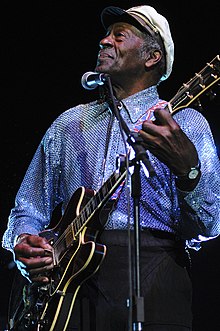GLAM/Newsletter/August 2018/Contents/Brazil report
|
Brazilian Wikimedians develop tools for mass contributions: Mbabel and Import-500px
When a red link isn't an empty page: Structured narratives on Wikipedia with Mbabel tool


We have worked with the concept of structured narratives as the development of verbal texts, understandable by humans, automated from predetermined arrangements that process data from structured databases. In this case, we are able to generate draft texts for articles automatically from predefined arrangements in the Mbabel templates that work with Wikidata support. We named the texts generated by Mbabel structured drafts, which are already available for use on this page.
Articles about works of art, for example, follow a similar narrative structure, since they need to present essential information such as who created it, what it depicts, where it is located, its height and width, its inventory number and which collection it belongs, for example. These information are stored in Wikidata as property values. In Mbabel's structured drafts, properties are variables that can be applied in a generic and editable textual structure that adapts according to the desired artwork, making the editing process easier for the user.
The purpose of the tool is to assist the user in the first steps of editing an article, providing a basic text and organization structure. The tool also aims to integrate Wikipedia and Wikidata, bringing possibilities of computational resources exploitation in the Wikimedia platforms. Thus, the drafts generated by Mbabel contain automatic phrases created according to the availability of information registered in Wikidata besides introduction, Wikidata infobox, references and sections suggestions. In the museum template, we also have added a Listeria containing up to 100 pieces exposed in the place, in order to complement the content of the entry.
The sentences structure is stored in a thematic template and changes according to the properties available in the corresponding item on Wikidata. The more information available in the Wikidata items, the more complete are the structured drafts generated by Mbabel. Further details on the operation of the Mbabel templates can be found in the presentation available in English and Portuguese on the page of the Wikidata Lab IX event, including a link to video of the talk.
The tool is quite easy to use: it only requires the user to have the Wikidata qid of an item that doesn't have yet a Wikipedia entry and to select one of the six available templates on the page - works of art, museums, movies, books, newspapers and earthquakes. The user can also create other Mbabel templates for themes that cover a great amount of qids. Templates on newspapers and earthquakes were created by attendees of Wikidata Lab IX.
It is important to note that Mbabel was not created to replace human edition and that the structured draft should necessarily be improved by the user on his sandbox before being published as article in the main domain respecting the quality standards agreed by the community.
At last, it was exciting to develop the Mbabel tool and I would like to invite the Wikimedia Community to engage with it and experiment its possibilities.
Importing rescued photographs to Commons: Creating a tool to explore and import free images from 500px

In the final days of July we discussed the possible mass upload to Commons of photos with free licenses in the 500px website. The site has decided to no longer allow upload of Creative Commons photographs and the kind folks at the ArchiveTeam archived all the images over at the Internet Archive. Before deciding on a mass upload, we decided to question how many images and of what quality.
Contacted, the ArchiveTeam promptly provided a count of images by license and the metadata of those with compatible free licenses. With 231348 photographs, exploring and selecting them for import was not a simple task. Using Wikimedia Cloud Service's Toolforge we developed a website that allows Wikimedia users to explore and import the images into Commons.
With the diligent work of two users and input from several members of the Commons community we have already imported more than 50000 photographs into Commons. Including wonderful closeups of insects and flowers, as well as great city landscapes and various other themes.
| Home | About | Archives | Subscribe | Suggestions | Newsroom |



